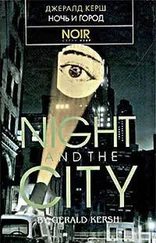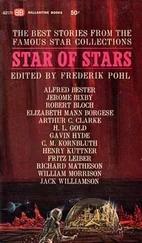Bohemund Raymond would never soil his hands on such, said “Swindle-sheet” Morris, “but I don’t mind if I do, you little mess, you! Bohemund was my friend, and I say so to the whole bleeding pub-load of you. You are not fit to drink the water he washed his socks in, and if any of you want to deny it, come on! Single-handed, or mob-handed, come on! . . . Will you stand by, Gerald?”
I said, “Oh, sure, Morris.”
Then, with emotion, “Swindle-sheet” Morris said, “We knew him in good times and bad, old Bohemund—didn’t we, Gerald? We were cubs under Bohemund; weren’t we, Gerald? Why, when the old World-Globe went bust and was bought by Lovejoy in 1929, who predicted it? Bohemund Raymond! Why, you little layabouts, I see him as plain as I see you here—plainer—saying: ‘Morris, the world is coming to an end, and the very globe will change.’ And that, mind you, was in 1917. . . . Bohemund was like a mother and father to me: he tore up every word I wrote, he treated me like a dog, he bashed me into shape, he made me what I am. Didn’t he, Gerald?”
Since I could not very well say that I did not remember, and that, in any case, while “Swindle-sheet” Morris was what he was, I did not much care for his shape, I could only say, “You’ve got something there, Morris.”
At this, Jack Cantwhistle, the old crime reporter, a kindly, sensitive man under the scar-tissue, said: “Yes, Bohemund was the ablest man in the Street. God knows what he might have got to be if it wasn’t for his ‘ifs and ans.’ Poor old Bohemund always had to foresee —no part of a newspaperman’s job, foreseeing; very dangerous practice. We’re all entitled to a bit of guesswork; but you keep your guesses to yourself. I’m not saying a word against my old friend Bohemund, Morris, and I won’t hear a word said against him—only, when he had one of his funny turns, especially after he’d been on a blind, he had to get prophetic. Made himself a laughing-stock, in fact.”
“Swindle-sheet” Morris said, “Laugh if you like, Jack—his prophecies always came true, almost. When he first took me on, I worshiped the ground he trod on. But he said to me, ‘Get on the job. Keep your thanks. You will live to make a hissing and a mockery of me!’ And Lord forgive me, so I did. . . . And as for my old friend Bohemund’s having a glass of beer once in a while between meals; why, he had to, because he took things so much to heart. He got away from the world that way, and clarified his intellect.”
The decayed advertising man sniggered. “Bohemund clarified his intellect all right, that time Lord Lovejoy sent him to Scotland for six months! Remember? The time he started seeing snakes and mermaids and midgets and things in the office?”
“Swindle-sheet” Morris shouted: “Why, you lavatory! Bohemund’s intellect was never clearer than when he saw those snakes, et cetera. They said it was d.t.’s, but it wasn’t. I know, because I was his assistant, at the time, damn it all! . . .” Then he went on to say that, at that time, in the spring of 1930, Bohemund’s wife ran away from him. To her, as to everyone else, he had prophesied “You shall make a hissing and a mockery of me.” And so she did. He went on working, however, with deadly efficiency but like a man in a dream, souping himself up for the superhuman efforts of each new night with whisky—as a robber soups up an old stolen car for the few minutes of a mad dash between the smashing of the jeweler’s window and the hideout. So Bohemund Raymond blasted and rattled from sunset to sunrise, leaving behind him a trail of startled faces, shattered glass and shrill whistles.
Now those who say that Lord Lovejoy tolerated Bohemund Raymond because that phenomenal newspaperman “had something on him” do the memory of the Press Baron an injustice. Everyone had something on Lord Lovejoy; those who hadn’t, invented something to have on him, and much he cared! Lord Lovejoy was a ruthless man, an unscrupulous man, a pig-headed and, at times, brutal man; but he was neither a coward nor a fool. He liked you or he didn’t, often for the wrong reasons; but he was as staunch a friend as he was implacable an enemy. One evening—you could never predict the movements of Lord Lovejoy—returning from Canada where he had just bought five hundred square miles of virgin forest to shred up and pulp for his newspapers, he looked in at the office, dressed in a mackinaw. The night doorman, who was drunk and new to the job, asked him who the devil he thought he was. “I am Lord Lovejoy,” said the little potentate. “Oh yes? And I am Bombardier Billy Wells,” said the doorman, using the name of the man who was at that time heavyweight boxing champion of England. . . . Lord Lovejoy then said, “And how do you like The Daily Special ?” The doorman said, “Och, I wouldn’t use it to wrap tripe-and-chips in. Indade, I wouldn’t carry the damned rag away with me atall, atall, only my little bhoy likes to color in the fashion section, bless his heart, wid his little box o’ paints.”
At this point, Lord Lovejoy’s secretary arrived, breathless, and took his master upstairs to the office with the onyx desk. There, Lord Lovejoy said, “That man Bombardier Billy Wells—take him off the door. Start a new children’s section; make him editor; get circulation. What we need is an Empire-wide printing competition for children under fourteen—five thousand pounds in prizes and scholarships. . . . You were three minutes late; you’re fired. . . . Where’s Bohemund Raymond? Never mind, I’ll go myself. . . .” So Lord Lovejoy walked into the news room, and there was Bohemund Raymond drinking a colorless liquid that smelled of juniper berries out of a teacup. The night’s work was nearly over. Poor Raymond’s right hand was bleeding—he had impaled it on the spike, that stake which is driven through the heart of rejected copy. Lord Lovejoy said to him, “Hello, Raymond! See anything new?” Then Bohemund replied, in his double-clipped sonorous voice, “Serpents! Maddened beasts! Yes, I see a Mermaid, and a tiger—and a giraffe looking in the window. Between his legs run little wizened dwarfs in—”
“You’ve been on the booze, Bohemund, old man,” said Lord Lovejoy, “and you’d better lay off. Come on, after all, I bar seeing snakes in office hours. Take three months’ holiday with pay, and go to my place in Scotland. One more peep out of you, and I’ll fire you.” Then he called his secretary and said, “Oh, Spray—you were three minutes late tonight; losing grip; need vacation. So does Bohemund Raymond; pack up and go to Loch Lovejoy with him at once; but if I hear only one drop—one drop, mind!—of liquor has passed his lips in the next twelve weeks, as from this moment, you are fired this time once and for all. Get cracking!” After a few more serious words with Bohemund Raymond, the Press Baron concluded: “. . . I have your solemn word of honor then—no liquor for three months. Otherwise you’re through. Meet Spray, and scram; anything extraordinary happens, let me know. ’Bye now.”
So Bohemund Raymond left for Scotland with the teetotal secretary, Spray. They had not been gone ten hours when one of Lord Lovejoy’s private phones rang, by one of his bedsides, and the voice of Bohemund Raymond, shaky but calm, said, “You said to tell you if anything extraordinary happens. Raymond calling from Dogworthy Junction. Listen, the mermaid is dying on the platform. One of the seven dwarfs has broken his leg, and his tiny wife is tying up his wounds with her spangled tights. Hold on! There is a tiger loose in the streets, and a rat with orange-colored teeth, five feet long, chewing tobacco—and the giraffe, poor beast, cut his neck on the glass of my window—” Abruptly, Lord Lovejoy rang off, got through to the office and said, “Fire Raymond and Spray.” Next morning, however, there was a report of the affair in all the other papers: Bohemund Raymond’s train had collided with a circus train, and for a few hours many of the side-show exhibits were loose around Dogworthy Junction.
Читать дальше






